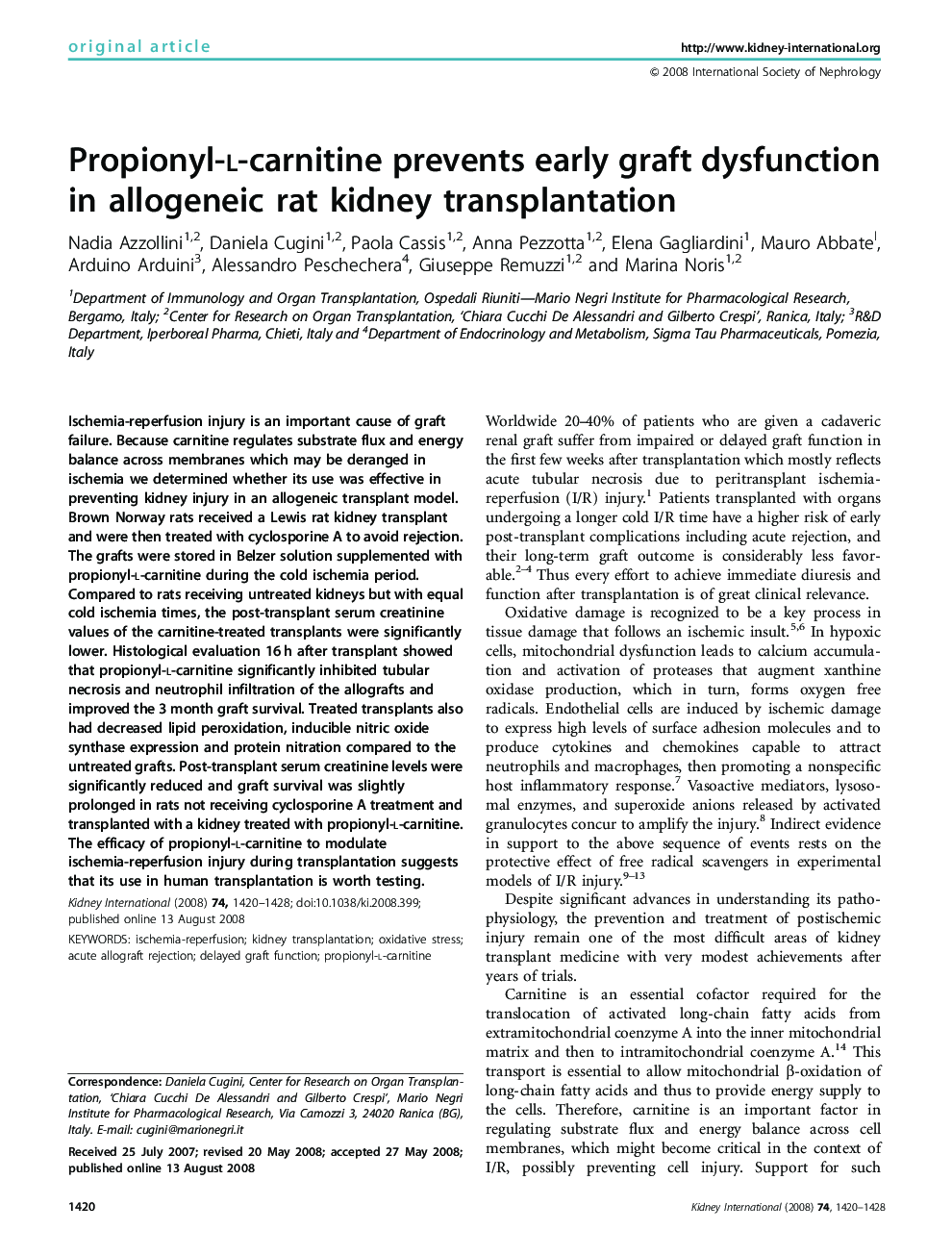| Article ID | Journal | Published Year | Pages | File Type |
|---|---|---|---|---|
| 3884168 | Kidney International | 2008 | 9 Pages |
Ischemia-reperfusion injury is an important cause of graft failure. Because carnitine regulates substrate flux and energy balance across membranes which may be deranged in ischemia we determined whether its use was effective in preventing kidney injury in an allogeneic transplant model. Brown Norway rats received a Lewis rat kidney transplant and were then treated with cyclosporine A to avoid rejection. The grafts were stored in Belzer solution supplemented with propionyl-L-carnitine during the cold ischemia period. Compared to rats receiving untreated kidneys but with equal cold ischemia times, the post-transplant serum creatinine values of the carnitine-treated transplants were significantly lower. Histological evaluation 16 h after transplant showed that propionyl-L-carnitine significantly inhibited tubular necrosis and neutrophil infiltration of the allografts and improved the 3 month graft survival. Treated transplants also had decreased lipid peroxidation, inducible nitric oxide synthase expression and protein nitration compared to the untreated grafts. Post-transplant serum creatinine levels were significantly reduced and graft survival was slightly prolonged in rats not receiving cyclosporine A treatment and transplanted with a kidney treated with propionyl-L-carnitine. The efficacy of propionyl-L-carnitine to modulate ischemia-reperfusion injury during transplantation suggests that its use in human transplantation is worth testing.
